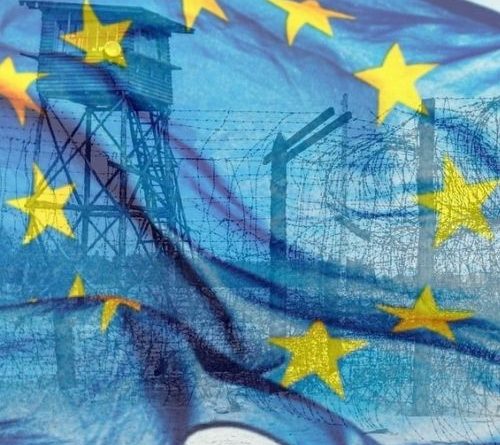Haunted by the Ghost of Fascism
In October 2020, Poland announced a new abortion law that would further restrict women’s rights. When I saw the news, I found myself wondering whether the central-European country still fits into the European Union and the values that we hold as a region. Then I remembered Brexit, and the unrest in France regarding terrorism and police brutality. Perhaps the better question is: does the EU still hold the same values it once did? Or was it all a facade?
21st Century Populism
When the Polish government planned to implement a new law to ban almost all abortions in October, the Polish people marched in the streets of Warsaw and other cities in response. The protests and critique from other countries caused the government to delay their decision. Now, some three months later, national-conservative president Andrzej Duda wants to push through the abortion law still, again sparking massive protests in the country. Poland already has incredibly strict abortion laws, and this new law would further restrict abortion to just cases of direct danger to the mother’s health, incest, or rape.
Democracy in Poland has been eroding over the past decade. This is largely the result of Prawo i Sprawiedliwość (PiS), the party of Law and Justice, which has been in power since 2015 and is currently represented by Andrzej Duda. Judicial reforms have given ministers increasing power over the courts, including the appointment of judges to the Supreme Court, which oversees the verification of election results. Corruption and incompetency have caused Poland’s rating to drop from ‘consolidated democracy’ to ‘semi-consolidated democracy’.
Rated even lower than Poland is Hungary. Far-right prime minister Viktor Orban has been in power in this central-European country since 2010 and has spent a decade consolidating his power and chipping away at democratic institutions. This is demonstrated most clearly in Orban’s meddling in public universities, such as the prestigious Central European University, as well as his pressure on independent media and his control over state media. In a proper democracy, the media plays an important role in informing the public on the functioning of the government. But in Hungary, many media outlets at various levels are controlled by the state and are used to paint Orban’s opposition in a negative light.
The end of history?
Central and Eastern Europe have had a troubled relationship with democracy compared to Western Europe. These two regions had very different experiences of World War II and the Cold War that followed. For many Western European countries, 1945 meant liberation from Nazi occupation, but for many Eastern European countries, it simply meant a different type of occupation. After the Red Army helped to defeat Nazi Germany, it did not simply retreat back to the Soviet Union, but instead came to occupy the very countries that it had liberated. These different experiences made it difficult for them to integrate into the European Union.
For many countries east of the Iron Curtain, the end of the Cold War was their first moment as independent states. Western Europe was eager to spread their ideals of liberal democracy, but the transition from a closed society under dictatorial rule to an open society with democratic participation was not an easy one. Many Western European countries, from England to France and the Netherlands, have a long history of democracy and liberty and have had time to develop democratic institutions. But simply imitating Western politics without any of these developed institutions, and without a population that has experience with civic participation, does not work. Instead, it produces illiberal democracies such as Belarus, which might hold ‘democratic’ elections, but has been ruled by Alexander Lukashenko for over 25 years now.
Interestingly enough, it was the Central European countries such as Poland and Hungary who had an easier transition in the 1990s, as they already had some history of self-government. During this time, many people in the West believed that history was progressing linearly towards modernization. This idea was captured best in the 1992 book The End of History, in which Francis Fukuyama theorized that the end of the Cold War would mean the end of history, as every country would finally become a liberal democracy.
Or just a new chapter?
Now, it has become clear that history does not move in a linear line towards a final destination. The optimism of the 90s has been replaced with something else, perhaps a distrust in the political system, as populism is on the rise everywhere. Not only in the East, but also in the West, as I will show in my next article.
Sources:
Jarausch, Konrad H. Out of Ashes. Princeton University Press, 2015, pp. 426-451; 694-720.
Slag aan de Donau. Directed by Jos de Putter. VPRO, 2018. https://www.vpro.nl/programmas/tegenlicht/kijk/afleveringen/2017-2018/Slag-aan-de-Donau.html.

